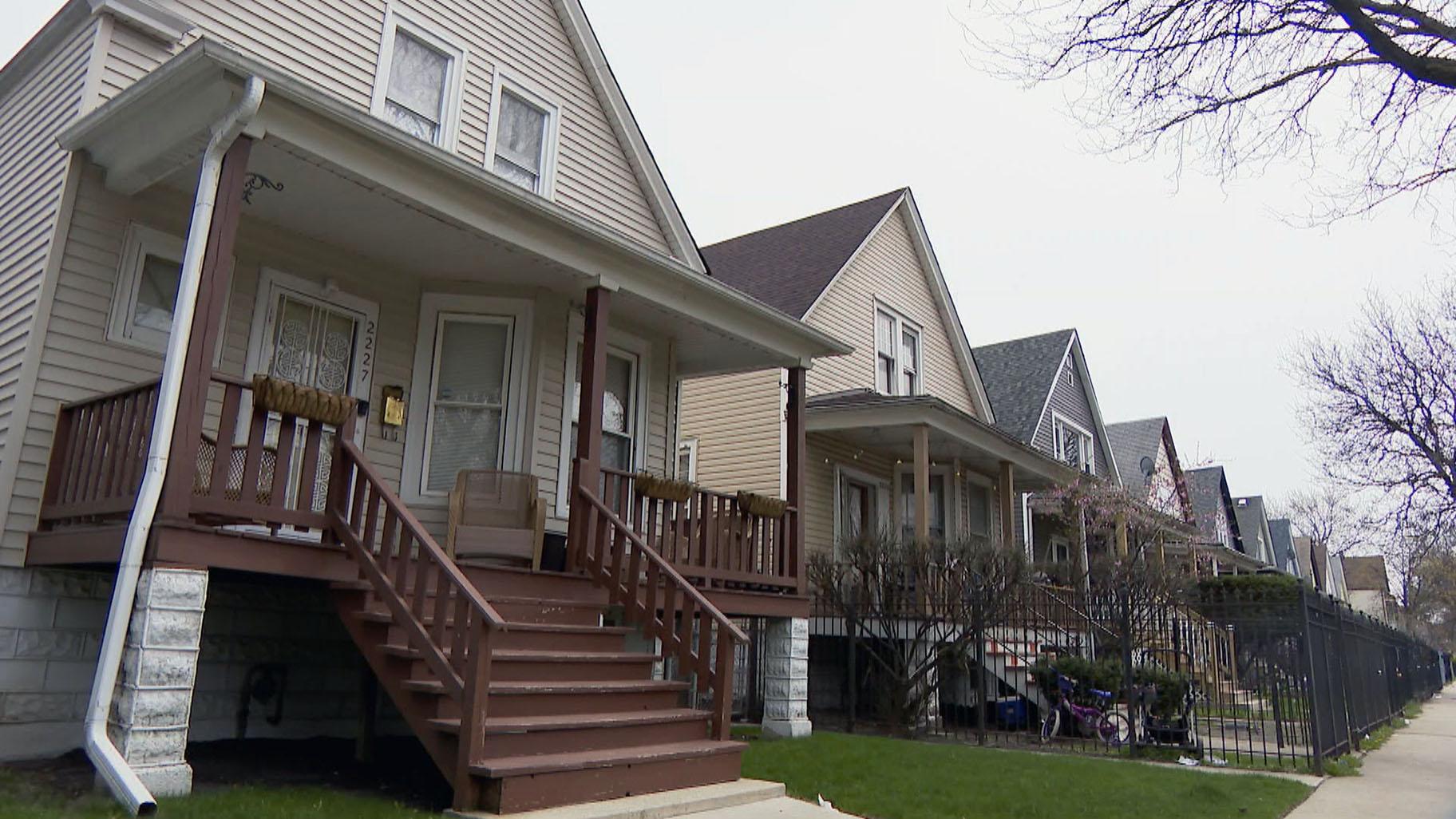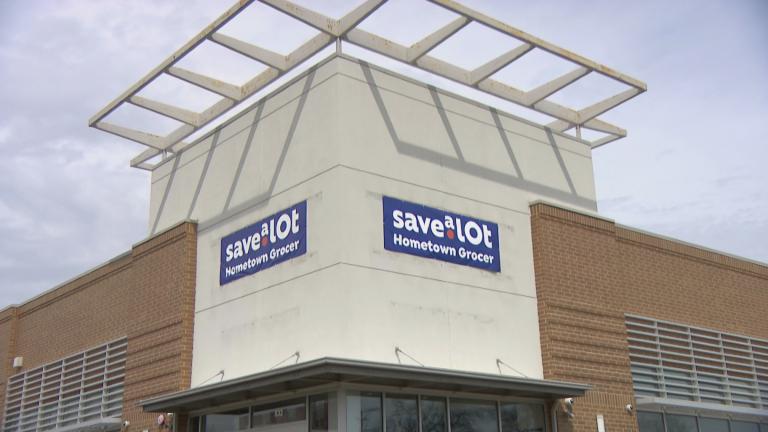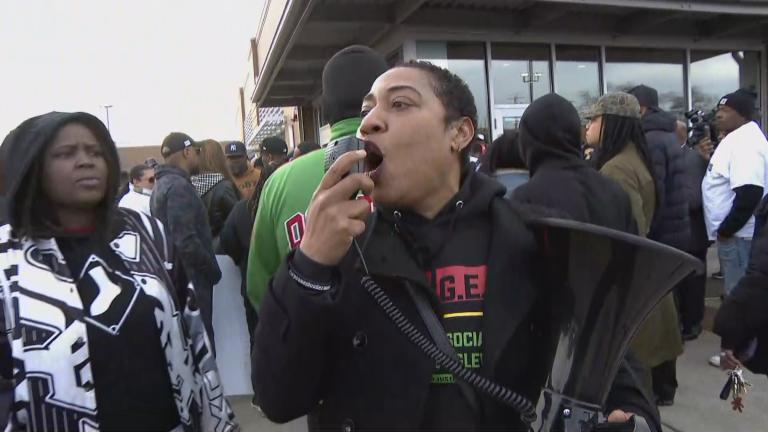 (WTTW News)
(WTTW News)
A proposal from Mayor Brandon Johnson to borrow $1.25 billion during the next five years to fund a wide-ranging slate of projects designed to expand the supply of affordable homes and good-paying jobs won the backing Thursday of the Civic Federation, a nonpartisan fiscal watchdog group.
Civic Federation President Joseph Ferguson called the complicated proposal to phase out the city’s decades-long reliance on tax increment financing districts, known as TIFs, “sensible” and “responsible.”
“Meeting looming funding cliffs while keeping steady and expanding support and incentives for economic development and housing needed for a thriving future will require a wide array of creative tools,” Ferguson said. “This proposal, as presented, standing on its own, merits a place in the toolbox.”
Ferguson’s blessing came at the second hearing on Johnson’s plan to reshape the way Chicago uses its financial resources to spur redevelopment and eradicate blight in an effort to breathe new life into neighborhoods that have suffered during decades of disinvestment.
The latest version of the proposal has been revised to increase the amount of control the Chicago City Council would have over how the funds are spent by requiring alderpeople to approve every project of more than $5 million.
In addition, officials with the departments of Planning and Development as well as Housing will have to detail the progress of the programs every three months, rather than just once per year, according to the revised proposal.
The criteria officials will use to select projects for funding would also be published online, in addition to details about every development and initative fueled by the proceeds from the borrowing, according to the revised proposal.
However, it is not clear those changes will be enough to win over skeptical alderpeople, several of whom said they were wary of such a big change to the way the city approaches economic development.
Ald. Brendan Reilly (42nd Ward) said all projects of $1 million or more should require City Council approval.
While Reilly is a frequent critic of Johnson, the proposal was also questioned by Ald. Jeanette Taylor (20th Ward), a mayoral ally.
“What ensures the South and West sides won’t go by the wayside?” said Taylor, whose South Side ward has seen little economic development for decades.
Later in the hearing, Ald. Samantha Nugent (39th Ward) said she was concerned that the North and Northwest sides would be excluded from grants made from the proceeds of the bonds, and said she was not sure she could support the plan.
Finance Committee Chair Ald. Pat Dowell (3rd Ward) has now held two hearings on the proposal, first introduced in February, and scheduled a vote on the proposal for Monday. If endorsed by the committee, a final vote could come as early as Wednesday.
Johnson has touted the proposal as a fulfillment of a promise he made during the 2023 campaign to make Chicago a more equitable place to live by “investing in people” and expanding the city’s economic capacity — without raising taxes on Chicago property owners.
Ferguson’s assessment of Johnson’s proposal will carry added weight at City Hall, given his 12-year tenure as the city’s inspector general charged with ferreting out fraud, waste and abuse.
Since their creation in the mid-1980s, TIFs have been beloved by alderpeople for providing a dedicated fund for a host of programs, ranging from road improvements to school additions and expanded park facilities. Those projects are not OK’d without the approval of local alderpeople, giving them a significant amount of power at City Hall.
That means transforming those dollars into a citywide pool of money runs the risk of reducing each alderperson’s power — and forces alderpeople to compete with their colleagues and lobby the mayor to ensure that their favored projects and initiatives are funded.
The plan calls for the city to borrow no more than $250 million per year, which will cost the city $81 million per year in debt service, according to Jill Jaworski, Chicago’s chief financial officer. In all, the city would be on the hook to pay back $2.4 billion through 2061, she added.
If approved, the proposal will limit how current and future administrations can spend the borrowed funds, will require public hearings to take place twice per year and will require officials to publish an online database tracking spending, officials said.
For many years, TIF districts have claimed a growing share of city property tax revenues, fueling the debate over whether the districts, which capture all growth in the property tax base in a designated area for 23 years, exacerbate growing inequality in Chicago.
Typically, as those districts expire, city officials have asked state lawmakers to extend the districts’ lives. But with 47 TIFs expiring in a short period, that is unlikely — which could shrink the amount of funds available for economic development projects significantly, officials said.
That means Chicago is facing two distinct fiscal challenges: the exhaustion of the city’s remaining federal COVID-19 relief funds and the end of massive surpluses in the city’s TIF districts, which has helped balance the city’s budgets, Ferguson said.
Most of the projects that would be funded with the proceeds from the borrowing are already in place and do not represent new initatives that could drain the city’s coffers, Ferguson said.
Once those TIF districts expire, the funds they had been collecting — estimated at $2.2 billion through 2039 — would flow instead to the area’s taxing districts, including the city, Chicago Public Schools and the Chicago Park District. That would allow the city to pay off the debt without triggering a property tax increase, officials said.
The city’s remaining TIFs will focus on areas of the city where those funds can have the biggest impact, officials said.
Contact Heather Cherone: @HeatherCherone | (773) 569-1863 | [email protected]





